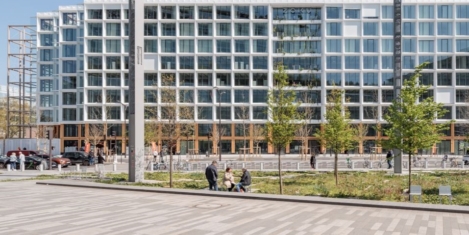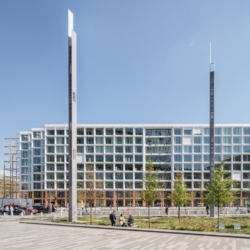To provide the best experiences, we use technologies like cookies to store and/or access device information. Consenting to these technologies will allow us to process data such as browsing behaviour or unique IDs on this site. Not consenting or withdrawing consent, may adversely affect certain features and functions.
The technical storage or access is strictly necessary for the legitimate purpose of enabling the use of a specific service explicitly requested by the subscriber or user, or for the sole purpose of carrying out the transmission of a communication over an electronic communications network.
The technical storage or access is necessary for the legitimate purpose of storing preferences that are not requested by the subscriber or user.
The technical storage or access that is used exclusively for statistical purposes.
The technical storage or access that is used exclusively for anonymous statistical purposes. Without a subpoena, voluntary compliance on the part of your Internet Service Provider, or additional records from a third party, information stored or retrieved for this purpose alone cannot usually be used to identify you.
The technical storage or access is required to create user profiles to send advertising, or to track the user on a website or across several websites for similar marketing purposes.
 Less than one-third of employees report they are engaged, enthusiastic and energised by their work, according to a new report from Gartner. The survey was showcased during the Gartner ReimagineHR Conference, which took place this week. Gartner defines engagement in three ways: employees feeling energised; employees finding purpose in their work; employees feeling empowered to do valuable work. (more…)
Less than one-third of employees report they are engaged, enthusiastic and energised by their work, according to a new report from Gartner. The survey was showcased during the Gartner ReimagineHR Conference, which took place this week. Gartner defines engagement in three ways: employees feeling energised; employees finding purpose in their work; employees feeling empowered to do valuable work. (more…)







 Two-thirds of board-level executives at UK-based manufacturing companies agree that sustainability is a high priority and a third have decarbonisation plans in place, but according to new research conducted by management consultancy,
Two-thirds of board-level executives at UK-based manufacturing companies agree that sustainability is a high priority and a third have decarbonisation plans in place, but according to new research conducted by management consultancy, 


 The CIPD has revealed its programme, including an exciting line-up of speakers, for its
The CIPD has revealed its programme, including an exciting line-up of speakers, for its 























